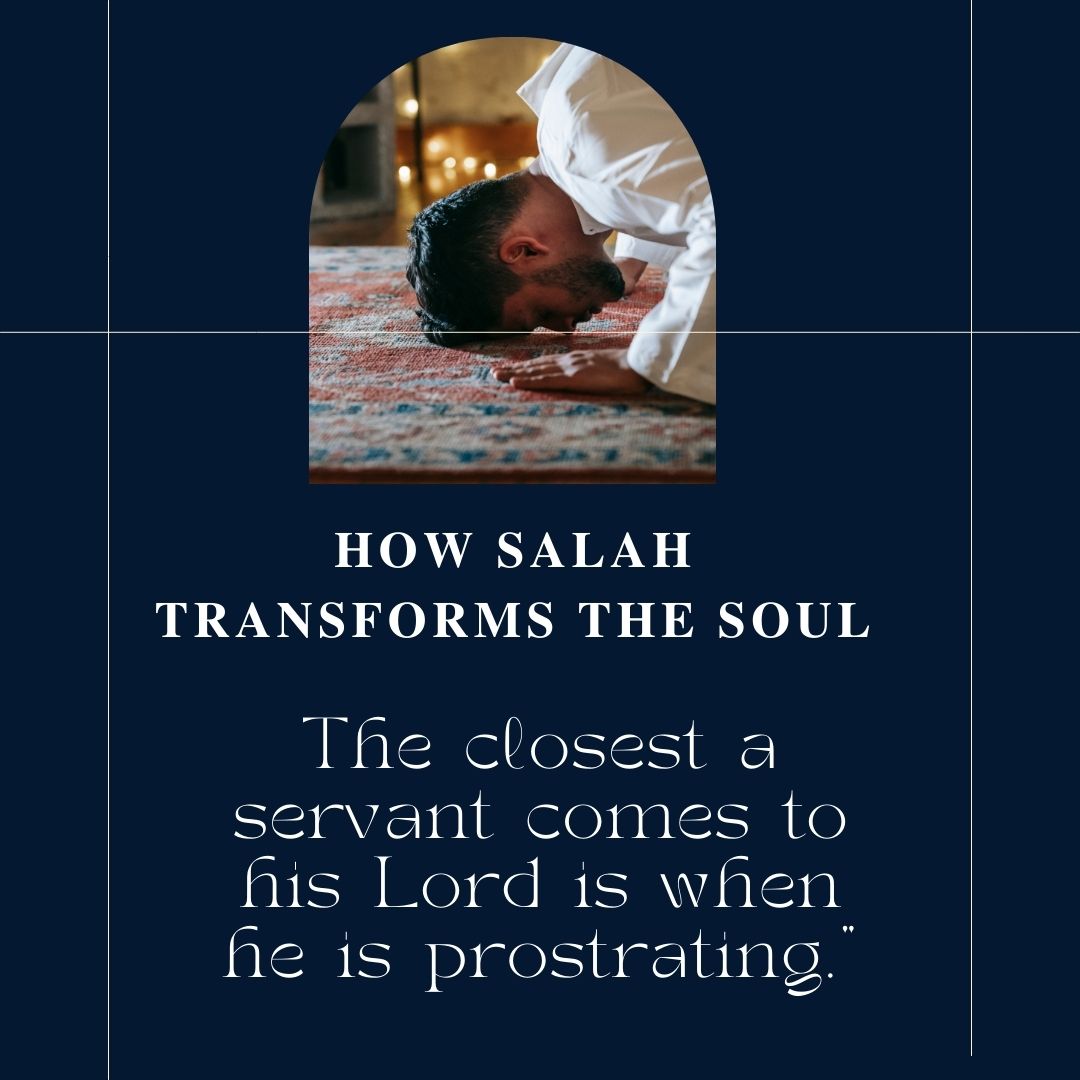A Spiritual Reflection
Salah, or the Islamic ritual prayer, is more than just a set of physical movements and words. It is the direct connection between a believer and Allah—a sacred meeting five times a day. For Muslims around the world, Salah is a spiritual anchor, a source of peace, and a path to inner transformation. This article explores how Salah transforms the soul and why it remains the heart of a Muslim’s spiritual life.
Salah as a Daily Spiritual Recharge
Life is full of distractions, stress, and spiritual fatigue. Salah provides a pause from the chaos of the world. When a believer stands in prayer, they leave behind worldly concerns and turn their entire focus to the Creator. This daily act helps cleanse the soul from spiritual clutter, realigning the heart with its divine purpose.
The Qur’an says in Surah Taha (20:14):
“Indeed, I am Allah. There is no deity except Me, so worship Me and establish prayer for My remembrance.”
This verse shows that Salah is not just for worship, but also for remembrance—remembrance that strengthens the heart and nourishes the soul.
Spiritual Discipline Through Salah
Praying five times a day instills discipline in a Muslim’s life. It teaches time management, consistency, and focus. This regularity is a spiritual exercise that builds resilience against laziness, procrastination, and heedlessness.
Moreover, the structured movements of Salah—standing, bowing, prostrating—are not random. They represent humility before Allah. Especially in sujood (prostration), where the forehead touches the ground, the believer is at their most humble. In this state, the soul finds true freedom through submission.
As the Prophet Muhammad ﷺ said:
“The closest a servant comes to his Lord is when he is prostrating.” (Sahih Muslim)
This closeness purifies the soul and strengthens the connection with the Divine.
Protection Against Sin and Negativity
One of the most powerful effects of Salah is its ability to shield the believer from sin. Allah says in Surah Al-Ankabut (29:45):
“Indeed, prayer prohibits immorality and wrongdoing…”
When Salah is performed with sincerity and mindfulness, it acts as a reminder of one’s purpose and accountability. The more one prays with the heart, the more they are likely to avoid behaviors that displease Allah.
This transformation does not happen overnight. But with regular prayer, the heart softens, the soul awakens, and the desire to sin weakens. Salah becomes a moral compass that guides daily choices.
Healing the Heart Through Khushu’ (Focus)
Khushu’, or spiritual concentration in Salah, is what elevates it from a ritual to a deeply transformative experience. When the believer focuses on the meanings of the verses recited and reflects on their relationship with Allah, the prayer becomes healing.
Stress, anxiety, and grief can weigh down the soul, but Salah offers relief. It becomes a safe space to cry, to hope, to repent, and to find peace. Allah listens to every whisper, every tear, and every heartfelt plea made in prayer.
A Path to Inner Peace and Closeness to Allah
Salah is not just an obligation—it is a gift. Through it, Muslims experience a peace that the world cannot offer. It connects the soul to its source, reminding the believer of Allah’s mercy, love, and guidance.
In a world full of noise and distraction, Salah is the silence where the soul speaks and listens. It transforms the individual from within, purifying the heart and uplifting the spirit.
Conclusion
Salah is the most powerful tool for spiritual growth in Islam. It disciplines the body, purifies the heart, and elevates the soul. For every believer who seeks peace, purpose, and nearness to Allah, Salah is the answer. It is not just a ritual—it is a journey of the soul, a daily opportunity for transformation.


Leave A Comment